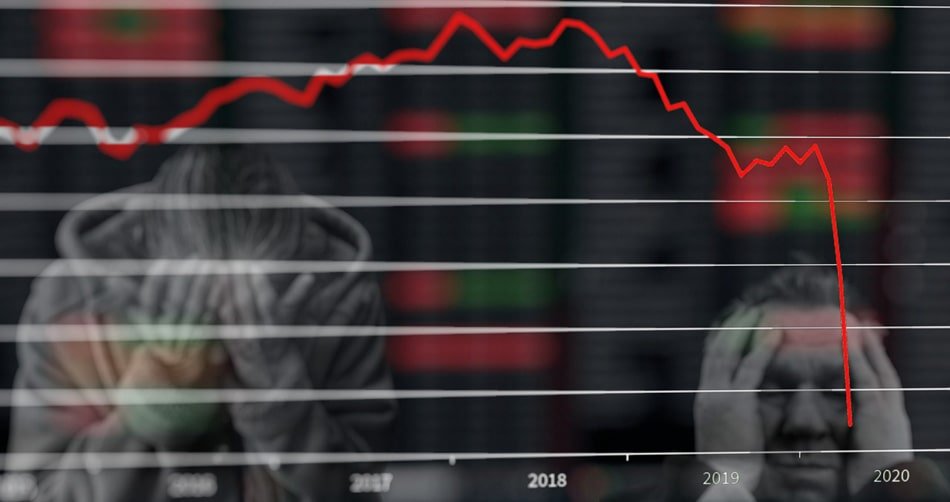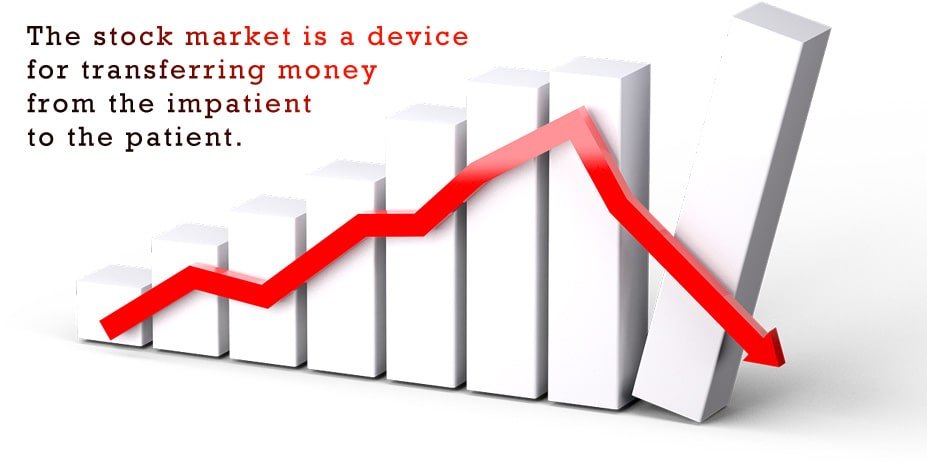Recession

A recession is a time period in the economy when the gross domestic product (GDP) declines for two or more consecutive quarters. It frequently comes with a drop in employment, a rise in unemployment, a loss in consumer expenditure, and a decrease in company investment.
How does the Recession Affect Business?
Businesses may be significantly affected by recessions. Recessions may affect businesses in a variety of ways, including:
Decline in demand
During a recession, consumers tend to spend less money, which can lead to a decrease in demand for goods and services. This can result in businesses experiencing a decline in revenue and profits. Many businesses may be forced to lay off employees, reduce their investment in new projects, or even close their doors altogether.
Increase costs
During a recession business revenue decline on one side and on another side, the expense of operating the business increase such as higher borrowing costs, higher raw material prices, or higher employee costs.
Increase competition
With a decline in demand, businesses may also face increased competition as companies try to retain market share by lowering prices or offering promotions.
Credit Difficulty
In recessions, banks and other lending institutions become more cautious in issuing loans, making it more difficult for businesses to obtain the credit they need to expand or maintain operations.
Uncertain Environment
Businesses may experience considerable uncertainty during a recession because they find it difficult to forecast how long the recession will last and what the state of the economy will be after it is over. Because of this, it is challenging for businesses to develop long-term planning and decisions.
In general, recessions may make it difficult for firms to operate, and those who can adjust and come up with innovative strategies to reduce expenses and boost productivity may have a better chance of surviving during the recession phase.
What Causes the 2008 Financial Crisis?
A number of things contributed to the financial crisis of 2008, including the collapse of major financial institutions, a drop in real estate values, and an increase in subprime mortgages. These conditions caused loan availability tough, which in turn caused a global recession.
The housing market fall, which was a major contributor to the crisis, was brought on by a variety of things, including the growing use of subprime mortgages, or mortgages issued to individuals with bad credit. Mortgage-backed securities, which were subsequently offered for sale to investors all over the world, were frequently created by grouping these mortgages together.
When home values started to collapse, many borrowers found themselves unable to make their mortgage payments. As a result, the value of mortgage-backed securities collapsed, resulting in significant losses for many large financial institutions. This resulted in a loss of faith in the financial system and a credit crunch that made it challenging for companies and individuals to get loans.
Inadequate monitoring and regulation of the financial sector, poor risk-management procedures used by financial institutions, and a lack of transparency in the financial markets are all contributing reasons to the crisis. In general, the financial crisis of 2008 was a complicated incident with several causes.
Fiscal Policy to Combat Recession
Fiscal policy seems to be effective to combat recession by raising government spending, lowering taxes to enhance aggregate demand and stimulating economic development.
Fiscal policy may be applied in a number of different ways to fight a recession:
Increased government expense
The government can increase spending on infrastructure projects, social programs, and other areas in order to create jobs and stimulate economic growth.
Decline tax rate
The government can cut taxes for individuals and businesses in order to increase consumer and business spending, which in turn can boost economic activity.
Increased transfer payments
To help low-income families during the recession, the government can raise transfer payments like unemployment benefits, food stamps, and other social welfare programs. In doing so, the buying power of these households would not decline as much and it would stimulate the economy.
Combination of all three
Government can use all the above-mentioned methods together to boost economic activity, by increasing spending, decreasing taxes, and providing more transfer payments to households.
It’s crucial to remember that the choice of fiscal policy is influenced by the state of the economy, the amount of deficits and debt, and political factors.
Recession and the Stock Market

Since the stock market is regarded as a leading indicator of economic activity, recessions and stock market performance are closely related. Stock prices may decrease because investors become more risk-averse during a recession.
This is due to the fact that recessions result in slower economic growth, lower business profitability, and rising unpredictability, all of which can impact overall company valuations.
However, it’s also crucial to remember that the economy and the stock market aren’t necessarily closely related. Prior to an economic recession, the stock market may decrease; but, after the recession, the stock market may rebound.
The stock market is speculative, and values may represent predictions of upcoming monetary situations.
The stock market may also be impacted by government action, such as a stimulus package or interest rate reduction.
The stock market may be impacted by monetary policy, fiscal policy, and other non-economic variables, and the market can react to recessions in different ways depending on the particular conditions and policy reaction.
Thus, recessions can have a negative effect on the stock market, it’s important to keep in mind that stock market performance is not always indicative of the state of the economy as a whole. Investors should always take a variety of aspects into account when choosing an investment in the stock market.
Effects of a Recession on the Economy
Recession causes a lot of negative things within the economy. Some of the more significant ones are:
Unemployment
High levels of unemployment are typical in recessions as companies downsize their workforces due to shrinking revenues. Unemployment is almost always rising during an economic downturn and sometimes, even when recovery commences, there are long lags before the labor market recovers completely.
Decline GDP
The gross domestic product measures the total value of all goods and services produced and generated in an economy. Inevitably, GDP declines due to a recession when the economy is slow. Hence, a low standard of living and a slow economic growth may be achieved over a longer period.
Reduce business investment
Most businesses usually cut down their investments during that time because they become too cautious to invest money. Hence, decreased productivity and economic growth in the long run will probably result.
Reduced consumer spending
The tendency for consumption to fall during recessions inevitably leads to declining sales of the business and, therefore, more layoffs. That, in turn, has an adverse effect on the total levels of activity in the economy.
Increase in government debt
The governments usually have increased expenditures during a recession as a means to stimulate the economy and helping the situation of job losses. Such actions could lead to an increased government debt trajectory, raising some concerns in the long run.
Increased poverty, homeless and Income inequality
Among the most afflicted by recession are low-income workers, they are already marginalized, e.g., homeless individuals, and those suffering from poverty.
Therefore, the economy may have long-lasting effects in terms of loss of jobs and a decline in GDP with reduced activities of the economy manifested in customers’ activities. It is on the other hand believed that, although these tools are not universally effective, fiscal and monetary policy of governments and central banks could be used to alleviate the negative effects resulting from recessions.
How does a Recession Affect the Spending Habits of Consumers?
Consumers often reduce their spending during a recession as they become more cautious and worried about their financial futures. There are various causes for this to take place:
Loss of income
Unemployment rises during a recession, and those who are unemployed or underemployed have less money to spend in their daily life.
Fear of job loss
Even those who are still employed could be afraid of losing them, which would cause them to be more frugal out of fear.
Reduced wealth
During a recession, the value of stocks, homes, and other assets tends to decline, which can lower consumer net worth. People may feel less rich as a result and reduce their expenditures.
Reduced access to credit
During a recession, credit markets tend to tighten, making it more difficult for individuals to get loans and credit cards. They may find it more challenging to finance big purchases as a result.
Psychological effects
People may become more pessimistic during a recession and reduce their spending out of concern that things may grow worse. This is because of the uncertainty and bad news
This causes customers to prioritize spending on necessities while limiting their purchases of luxury products, dining out, entertainment, and vacation. They frequently put off making significant purchases like homes or vehicles. This drop in consumer spending may have a detrimental impact on businesses and the economy as a whole.
Recession and Housing Prices
Recessions and housing prices are closely related, as changes in the economy can have a significant impact on the housing market. Housing values typically decline during a recession for a number of reasons, including:
Reduced demand
Recessions result in lost jobs and decreased consumer expenditure, which may lower home demand. Prices decline when demand is low because sellers must lower their asking price to bring in customers.
Reduced economic growth
Economic development is frequently slowed during recessions, which can make it more difficult for consumers to afford to buy a home. Additionally, it can result in a decline in home demand.
Reduced access to credit
In a recession, tightening credit markets can make it harder for people to get mortgages, which might lower demand for property.
Increase in housing inventory
Some people may be forced to sell their homes as a result of job loss, financial hardship, or other factors when unemployment grows. Additionally, new house sales may be difficult for builders and developers, which might result in a rise in the supply of available housing.
Negative expectations
People sometimes put off purchasing a home during a recession because they anticipate the economy will perform worse; this can reduce home sales, which can lower property values.
The property market and the economy are interconnected, so changes in one sector may have an effect on the other. The timing, severity, and duration of the recession, as well as certain aspects of the housing market, such as supply and demand dynamics, interest rates, and regulations, can all have an impact on house prices.